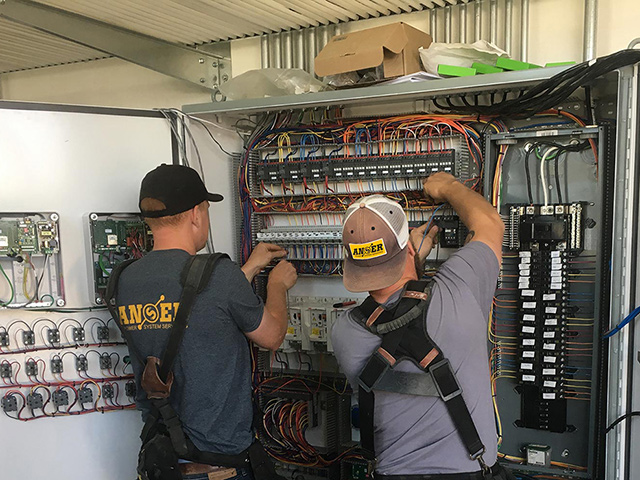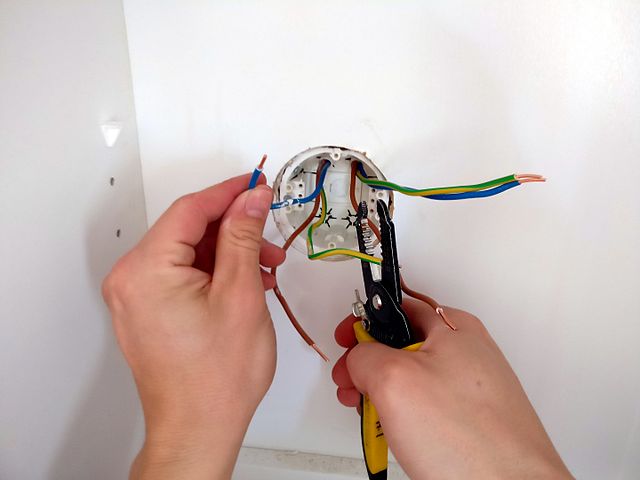In the quest for a sustainable future, renewable energy sources such as solar and wind power have emerged as frontrunners. As the world transitions from fossil fuels to cleaner alternatives, the role of electricians has become increasingly critical. These skilled professionals are essential in the installation, maintenance, and optimization of renewable energy systems. This article explores the vital contributions electricians make in the solar and wind energy sectors, highlighting their indispensable role in the renewable energy revolution.
The Growing Importance of Renewable Energy
Renewable energy is no longer a niche segment but a cornerstone of global energy strategies. Solar and wind power, in particular, have seen exponential growth due to their ability to generate clean, sustainable, and cost-effective electricity. According to the International Energy Agency (IEA), renewable energy capacity is set to expand by 50% between 2019 and 2024, with solar and wind contributing the majority of this growth.
Solar Power: Capturing the Sun’s Energy
Solar power harnesses the energy from the sun through photovoltaic (PV) panels and converts it into electricity. The efficiency and effectiveness of solar energy systems depend significantly on proper installation and maintenance, areas where electricians play a pivotal role.
Installation of Solar Panels
The installation of solar panels is a complex process that requires precision and expertise. Electricians are responsible for ensuring that the PV panels are correctly mounted, oriented, and connected to the grid or battery storage systems. This involves:
- Site Assessment: Evaluating the location to determine the optimal placement of panels for maximum sun exposure.
- Electrical Wiring: Connecting the panels to inverters and the electrical grid safely and efficiently.
- Compliance and Safety: Ensuring that all installations comply with local electrical codes and safety standards.
Electricians’ expertise in handling electrical components and ensuring proper connections is crucial to the overall performance and safety of the solar power system.
Maintenance and Troubleshooting
Regular maintenance is essential to keep solar power systems operating at peak efficiency. Electricians conduct routine inspections to check for issues such as shading, dust accumulation, or electrical faults. They are also called upon to troubleshoot and repair any problems that arise, ensuring minimal downtime and sustained energy production.
Wind Power: Harnessing the Wind’s Potential
Wind power involves converting kinetic energy from the wind into mechanical power using wind turbines, which is then converted into electricity. The role of electricians in wind energy is multifaceted, encompassing installation, maintenance, and monitoring of wind turbines. For more e information or to read all about electricians in renewable energy, check out abacusplumbing.com/electrician/led-lighting-installation/ to learn more.
Installation of Wind Turbines
Installing wind turbines is a highly technical and physically demanding task. Electricians work alongside engineers and construction teams to ensure the proper assembly and electrical integration of wind turbines. Their responsibilities include:
- Electrical Configuration: Setting up the electrical systems that connect the turbine to the grid.
- Control Systems: Installing and configuring the control systems that regulate turbine operations.
- Safety Systems: Implementing safety mechanisms to protect the turbine and grid infrastructure.
Electricians’ skills in electrical configuration are essential to the successful deployment of wind turbines, ensuring that they operate safely and efficiently.
Maintenance and Upgrades
Like solar power systems, wind turbines require regular maintenance to ensure optimal performance. Electricians perform routine inspections and maintenance tasks such as:
- Checking Electrical Components: Ensuring that all electrical systems, including transformers and inverters, are functioning correctly.
- Monitoring Performance: Using advanced monitoring systems to track turbine performance and detect any anomalies.
- Upgrading Systems: Implementing upgrades to enhance efficiency and adapt to new technological advancements.
The expertise of electricians in diagnosing and repairing electrical issues is crucial for the reliability and longevity of wind turbines.
The Evolving Role of Electricians in Renewable Energy
As renewable energy technologies advance, the role of electricians is evolving. They are not only involved in the practical aspects of installation and maintenance but also play a crucial role in system design, energy management, and innovation.
System Design and Integration
Electricians collaborate with engineers and designers to create efficient and scalable renewable energy systems. Their insights into electrical systems are invaluable in designing setups that maximize energy production and minimize losses. This collaborative approach ensures that renewable energy systems are not only technically sound but also economically viable.
Energy Management and Storage Solutions
With the increasing integration of renewable energy into the grid, managing energy flow and storage has become a critical challenge. Electricians are at the forefront of developing and implementing energy storage solutions such as battery systems, which store excess energy produced during peak times for use during periods of low production. Their expertise in configuring and maintaining these systems is essential for balancing supply and demand and ensuring grid stability.
Innovation and Technological Advancements
The renewable energy sector is characterized by rapid technological advancements. Electricians are continuously updating their skills and knowledge to keep pace with these changes. They are involved in the adoption of smart grid technologies, advanced monitoring systems, and automation, all of which enhance the efficiency and reliability of renewable energy systems.
Training and Certification for Renewable Energy Electricians
Given the specialized nature of their work, electricians in the renewable energy sector require rigorous training and certification. Various programs and certifications are available to equip electricians with the necessary skills and knowledge.

Specialized Training Programs
Numerous institutions offer specialized training programs focused on renewable energy technologies. These programs cover:
- Technical Skills: Hands-on training in the installation and maintenance of solar and wind energy systems.
- Safety Protocols: Comprehensive training in safety standards and best practices.
- Regulatory Compliance: Understanding local and national regulations governing renewable energy installations.
Certification and Accreditation
Professional certifications, such as those offered by the North American Board of Certified Energy Practitioners (NABCEP), validate an electrician’s expertise in renewable energy systems. These certifications are highly regarded in the industry and often required by employers and clients.
Conclusion
The transition to renewable energy is a monumental shift that requires skilled professionals at every level. Electricians are at the heart of this transition, ensuring that solar and wind power systems are installed, maintained, and optimized to deliver clean, sustainable energy. Their role is not only technical but also strategic, as they contribute to the design, management, and innovation of renewable energy systems.
As the demand for renewable energy continues to grow, so too will the need for skilled electricians who can meet the challenges of this dynamic and evolving field. Their expertise is crucial in driving the global shift towards a more sustainable and environmentally friendly energy future.









